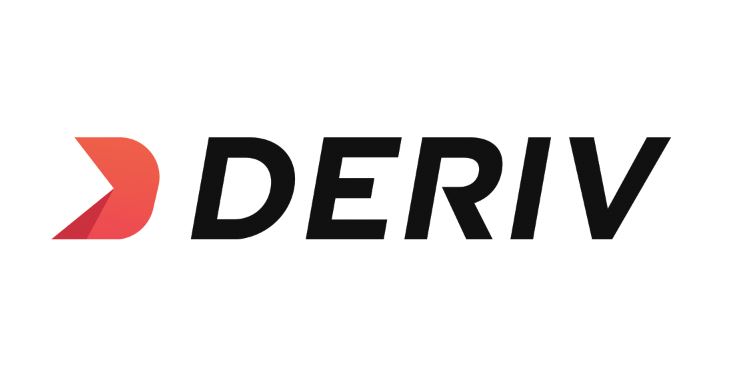Synthetic indices are financial instruments that are designed to track the performance of a market or asset class without actually owning the underlying assets. They use mathematical algorithms and financial derivatives, such as futures contracts or options, to mimic the price movements of a particular index or market. Synthetic indices are often used as a way to gain exposure to a market or asset class with lower capital requirements, and are used in a variety of financial products, including exchange-traded funds (ETFs) and structured products. However, they also come with additional risks, such as counterparty risk and the potential for tracking errors.
Synthetic Indices Brokers In South Africa
 | Min.Deposit $10 | In South Africa | |
 | |||
 | In South Africa | ||
 | In South Africa | ||
 | In South Africa |
There are several CFD providers in South Africa offering synthetic indices trading services. Some of the well-known brokers in South Africa include:
- IG South Africa
- Plus500
- Forex.com
- AvaTrade
- FNB Securities
It’s important to choose a broker that is regulated by the Financial Sector Conduct Authority (FSCA) and has a good reputation in the market. Before choosing a broker, consider factors such as the range of synthetic indices offered, trading platforms, fees, customer support, and the level of security offered for your funds. It’s also advisable to read reviews and compare different brokers to find the one that best suits your needs.

What Are Synthetic Indices?
Synthetic indices in South Africa refer to financial instruments that track the performance of a particular market or asset class without owning the underlying assets. They are created using mathematical algorithms and financial derivatives, such as futures contracts or options, to mimic the price movements of a specific index or market. Synthetic indices are widely used in South Africa as a means of gaining exposure to a market or asset class with lower capital requirements and are often found in products such as exchange-traded funds (ETFs) and structured products. However, they also come with additional risks, including counterparty risk and the potential for tracking errors.
How To Trade Synthetic Indices in South Africa?
Trading synthetic indices in South Africa can be done through a registered broker or financial institution offering access to the financial markets. Here’s a general overview of the steps to trade synthetic indices in South Africa:
- Open a trading account: Choose a broker or financial institution that offers access to synthetic indices trading and open a trading account.
- Fund your account: Deposit funds into your trading account to have sufficient capital for trading.
- Research and choose a synthetic index: Study the different synthetic indices offered by your broker and choose the one that aligns with your investment goals and risk tolerance.
- Place a trade: Once you have chosen a synthetic index, place a trade using your trading platform. You can choose to buy or sell depending on your market outlook.
- Monitor your trade: Keep track of your trade and monitor the performance of the synthetic index to make informed decisions on when to close your position.
It’s important to note that synthetic indices trading is a speculative activity and comes with the risk of losing money. It’s advisable to carefully consider your investment objectives, risk tolerance, and to seek professional advice before trading.
Are Synthetic Indices Legal In South Africa?
Yes, synthetic indices are legal in South Africa and regulated by the Financial Sector Conduct Authority (FSCA). The FSCA oversees the financial markets in South Africa, including the trading of synthetic indices, to ensure that the interests of investors are protected and the market operates fairly. The FSCA sets standards for financial institutions offering synthetic indices trading and regularly monitors the market for any irregularities. However, as with all financial products, it’s important to be aware of the risks involved and to seek professional advice before investing in synthetic indices.
Are Synthetic Indices Profitable In South Africa?
Whether synthetic indices are profitable in South Africa depends on a variety of factors, including market conditions, the specific synthetic index being traded, and the individual trader’s investment strategy and risk management.
Synthetic indices are designed to track the performance of a specific market or asset class, and if that market performs well, the synthetic index is likely to perform well too. However, there are also additional risks involved in trading synthetic indices, such as counterparty risk and the potential for tracking errors, which can negatively impact profitability.
It’s also important to note that trading any financial instrument carries the risk of losing money, and synthetic indices are no exception. Trading success will depend on a variety of factors, including the individual trader’s investment strategy, risk management, market knowledge, and discipline.
In conclusion, it’s possible for synthetic indices to be profitable in South Africa, but the profitability of a particular trade or investment will depend on a range of factors and cannot be guaranteed. It’s important to carefully consider your investment objectives, risk tolerance, and to seek professional advice before investing in synthetic indices.
Everything You Need to Know About Synthetic Indices
Here’s an overview of everything you need to know about synthetic indices:
- Definition: Synthetic indices are financial instruments that mimic the performance of a market or asset class without owning the underlying assets. They use mathematical algorithms and financial derivatives, such as futures contracts or options, to track the price movements of a specific index or market.
- Purpose: Synthetic indices are used as a way to gain exposure to a market or asset class with lower capital requirements and are used in a variety of financial products, including exchange-traded funds (ETFs) and structured products.
- Creation: Synthetic indices are created using mathematical algorithms and financial derivatives such as futures contracts or options, to mimic the price movements of a specific index or market.
- Risks: Trading synthetic indices comes with additional risks, such as counterparty risk and the potential for tracking errors, compared to directly investing in the underlying assets.
- Regulation: Synthetic indices are regulated by financial market regulators in different countries, including the Financial Sector Conduct Authority (FSCA) in South Africa.
- Trading: Synthetic indices can be traded through a registered broker or financial institution offering access to the financial markets.
- Considerations: Before investing in synthetic indices, it’s important to carefully consider your investment objectives, risk tolerance, and to seek professional advice.
In conclusion, synthetic indices are a popular way to gain exposure to a market or asset class, but it’s important to understand the risks involved and to seek professional advice before investing.
